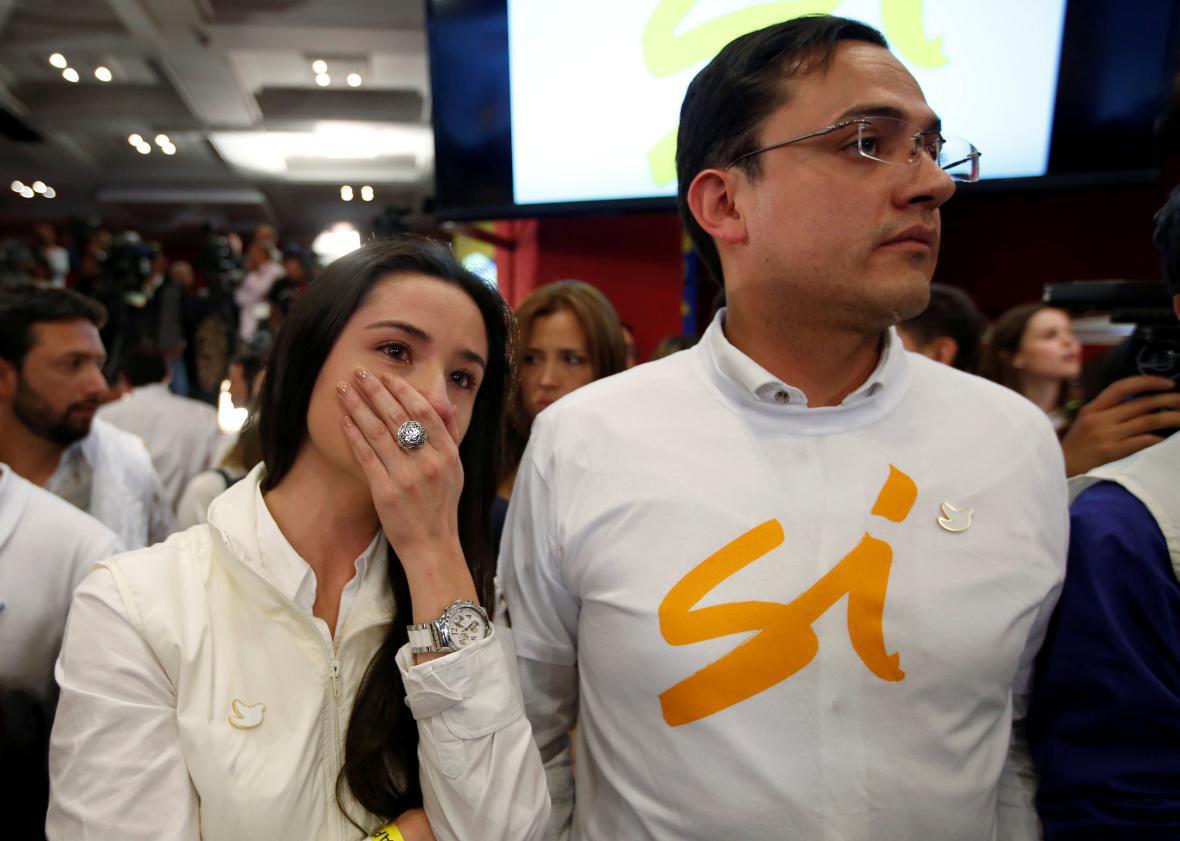It seemed like a done deal. Sunday’s referendum on a peace deal with lefitst rebels appeared to be simply a formality, the final step to put the lid on a 52-year-old armed conflict that killed 220,000 after four years of negotiations. But Colombian voters surprised everyone and the “no” side ended up winning by a tiny margin—50.25 percent to 49.75 percent. It’s a result that suddenly thrusts the country into uncertainty and leaves a huge question mark hanging over the peace process with the Revolutionary Armed Forces of Colombia, or FARC.
The vote has immediately drawn comparisons with Brexit considering Colombian President Juan Manuel Santos, who has been the biggest driver of the peace process, insisted Colombians needed to approve the agreement in order for it to be valid. Pre-election surveys had predicted that “yes” would win by a large two-to-one margin. Instead, voters delivered a huge blow to Santos, who had said before the referendum that there was no “Plan B” if the accord got voted down.
“The outcome reveals the depths of Colombian public animosity toward the rebels, accumulated by decades of kidnappings, bombing and land seizures in the name of Marxist-Leninist revolution,” notes the Washington Post. Many of those who had expressed opposition to the deal said it was too lenient on the FARC, which the U.S. has labeled as a terrorist group. Under the deal, most fighters would have been granted amnesty while those who committed war crimes were to be judged in special tribunals that would give reduced sentences, such as community service clearing land mines. “I don’t think this is fair in any sense of what justice means,” Salud Hernandez, a correspondent for El Mundo newspaper who was kidnapped by the ELN, Colombia’s second-largest rebel group, told CNN.
Extremely low turnout, pushed even lower by bad weather along the Caribbean coast where support for the government is highest, appears to have played a decisive role in the outcome.
